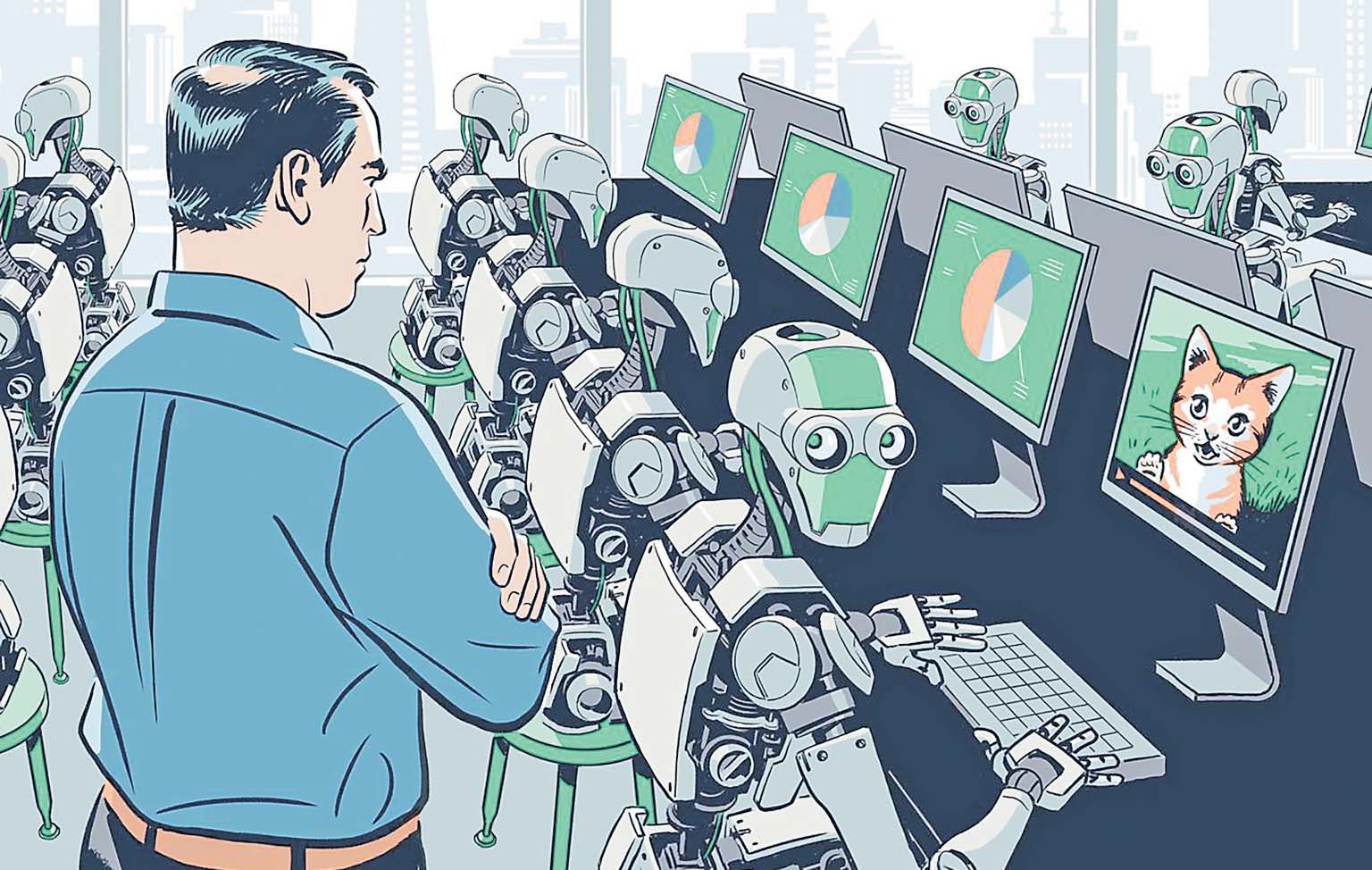You would have been living under a rock if you still did not know that artificial intelligence (AI) is the latest technological craze and is being implemented across almost every sector on earth to great effect.
And it’s not just AI like ChatGPT, the most widely used AI tool in Fiji and probably the one we are most familiar with, that is revolutionizing the globe.
The latest AI software is capable of building entire apps without any coding, analysing and entering data, and doing many other tasks that only a few years ago nobody would have believed could be done by AI (except in movies).
We’ve discussed AI extensively before, but like all new technology, it continues to change so rapidly that I find myself revisiting AI and the impact it may have, on the economy and the job market in Fiji.
The latest report by investment bank Goldman Sachs reveals some startling revelations about the impact AI is currently having on the global job market.
While the report itself is tailored more towards the US and European markets, it does provide valuable insights on how AI could impact Fiji in this highly globalized world we currently live in.
The report states that by 2030, AI could replace the equivalent of 300 million full-time jobs, with two-thirds of jobs in the US and Europe vulnerable to some degree of AI automation and around a quarter of all jobs potentially being fully automated.
While this could mean job displacement for many, the report also suggests a significant increase in productivity and the creation of new types of jobs.
The overall effect could be a 7 per cent rise in the global annual value of goods and services, according to Goldman Sachs.
Further, a study by the Massachusetts Institute of Technology and Boston University predicts that AI will replace as many as two million manufacturing workers by 2025.
Meanwhile, the McKinsey Global Institute forecasts that by 2030, at least 14 per cent of employees globally may need to change their careers due to advancements in digitisation, robotics, and AI.
With rapid developments in both AI and robotics, there is most certainly potential for many jobs to be entirely replaced by AI, IT support, app development, graphic design, and even physical jobs in the agriculture and cleaning industries.
Fiji is certainly not immune to this, and I can see many employers, especially in the private sector, preferring robots as their workforce, with increased efficiency and lower maintenance.
While we are not quite there yet in terms of robots, AI is already replacing the world’s largest companies, which are already replacing their humanoid workforces to varying degrees.
Google has copnducted wave after wave of layoffs.
The tech giant laid off thousands throughout 2023, beginning with a 6 per cent reduction of its global workforce (about 12,000 people).
Google CEO Sundar Pichai has not expressly stated that these occupations will be replaced with AI technology.
However, the job-cutting frenzy, which primarily impacts employees in the company’s ad sector, coincides with a substantial deployment of AI throughout customer care and ad sales operations, as well as a company-wide drive to leverage the technology to increase “operational efficiency.”
IBM intends to gradually replace nearly 30 per cent of its back-office roles with artificial intelligence over the next five years, totalling approximately 7800 employees.
The company has already slowed or stopped hiring for certain clerical positions, such as those in human resources.
However, clerical professions are not the only ones at risk.
IMB’s chief executive officer, Arvind Krishna stated that he is also interested in replacing tasks that involve more complicated duties, such as reviewing worker composition and productivity, within the next 10 years.
The famous plagiarism-checking software Turnitin is also replacing humans with AI.
During a discussion about AI in the workplace, Turnitin CEO Chris Caren revealed plans to reduce headcount.
The idea was that future employees might be hired out of high school rather than requiring numerous years of experience and that increased AI efficiency would lower overall headcount requirements.
The company’s original objective was to lower the company’s employment by 20 per cent in 18 months, meaning more layoffs are to come.
This is the story of many countries across the world.
So, what can we do?
Like all countries, our leaders, both in government and within each respective sector, must take responsibility and get ready for massive technological and business strategy shifts.
Government and the private sector should collaborate on training programs for AI and digital skills, emphasising reskilling and upskilling to help workers transition into new roles.
Initiatives to raise awareness about AI’s potential and limitations, along with regular workshops and seminars, can demystify the technology and educate businesses and individuals on its practical applications.
Fostering a supportive environment for AI-focused start-ups through incentives like grants, tax breaks, and incubator programs, and investing in local R&D centres to develop homegrown AI solutions seems farfetched but is a very realistic goal.
Here we can collaborate with leading players in the tech game using diplomatic channels.
Establishing ethical guidelines and a robust regulatory framework to ensure responsible AI deployment and address issues like job displacement and data privacy is essential going forward.
Incentives like tax breaks could also be considered if companies retain a certain percentage of their workforce.
All in all, AI is inevitable, and if Fiji is to compete in the global marketplace, we must be ready to adopt and adapt.
Until next week, take care and be safe!
- n ARNOLD CHANEL is an investor and business executive with years of tech expertise. He can be contacted on ceo@vanguardtech.pro. The views expressed in this article are his and not of this newspaper.



